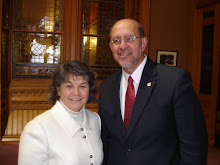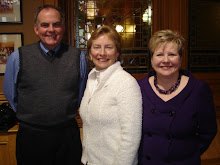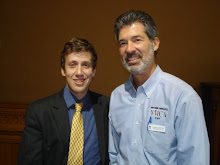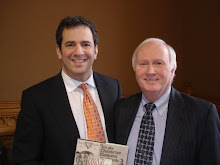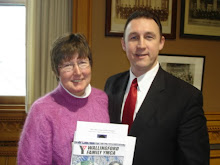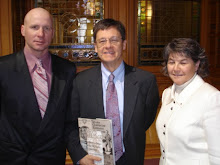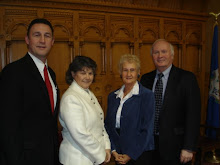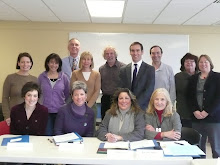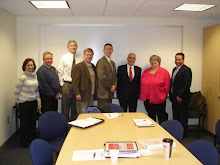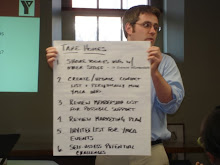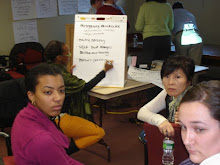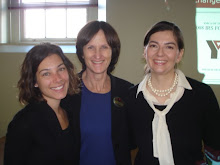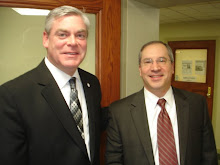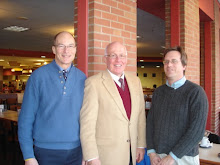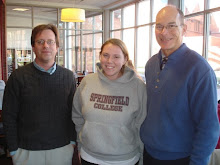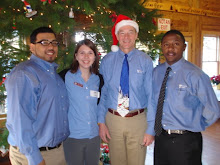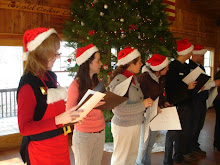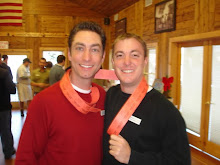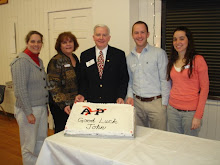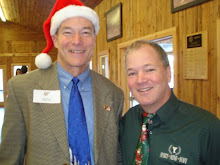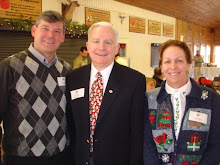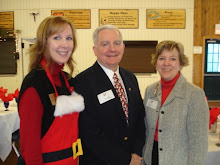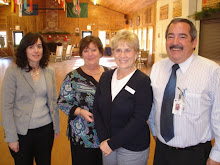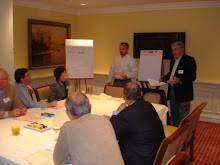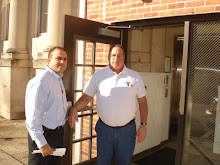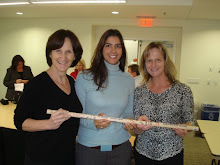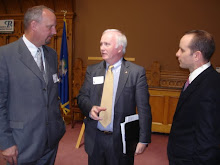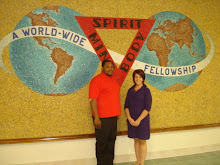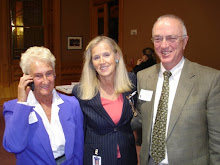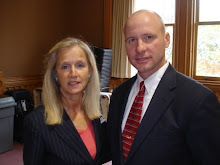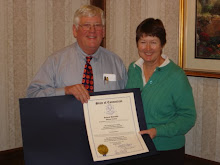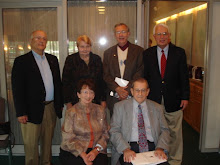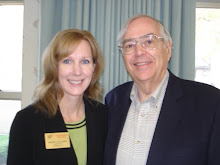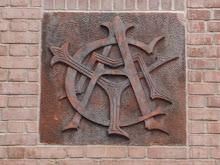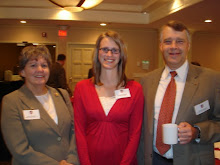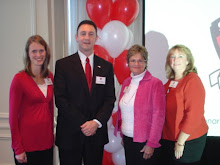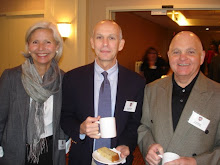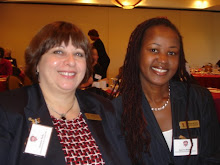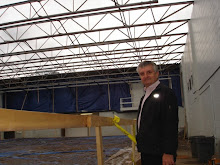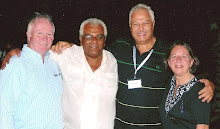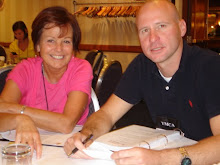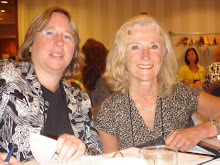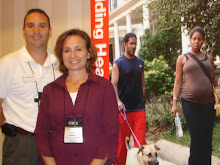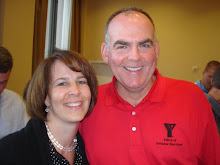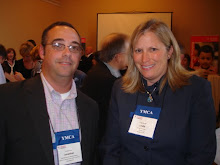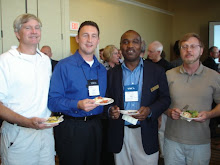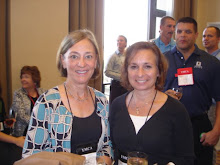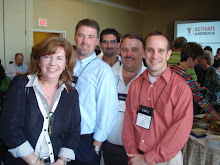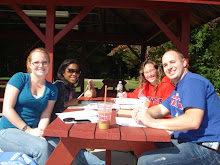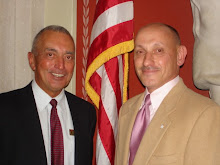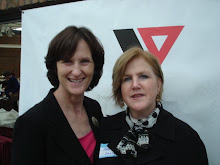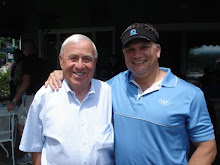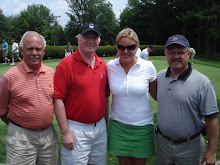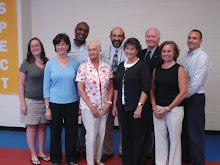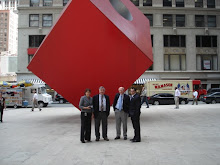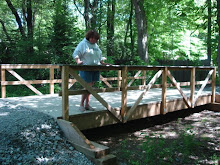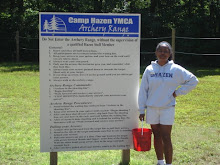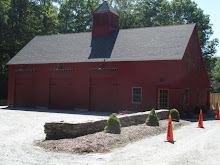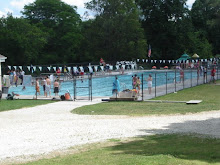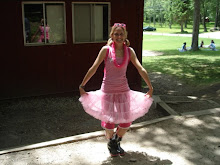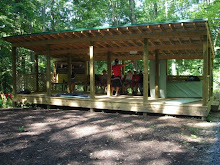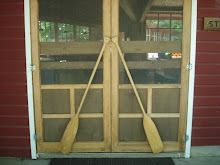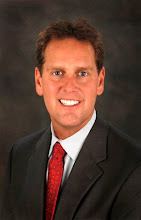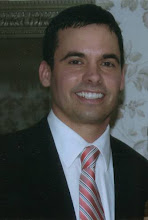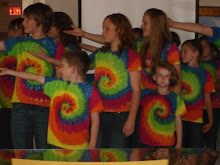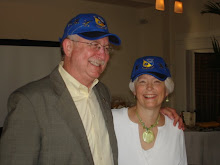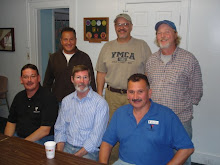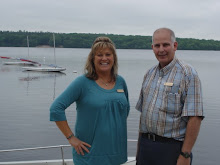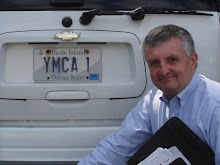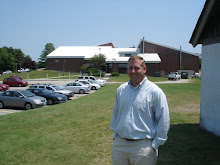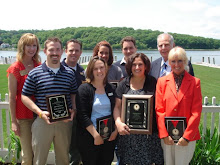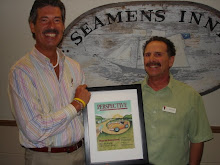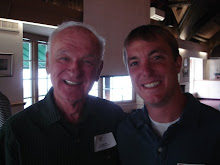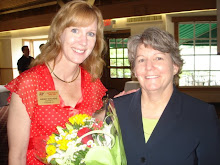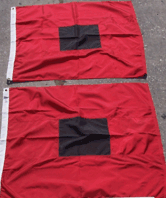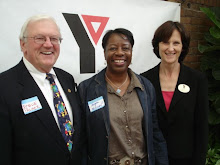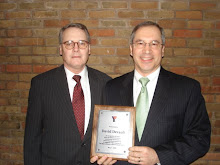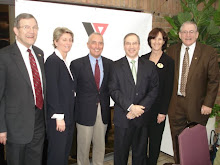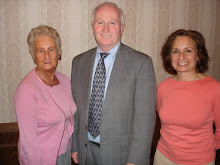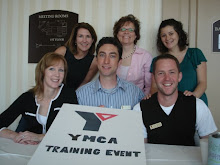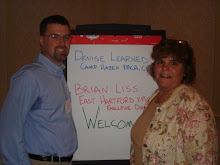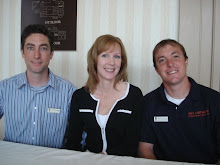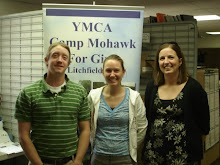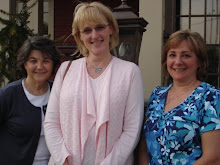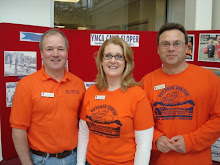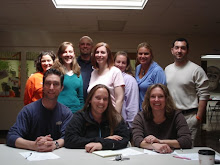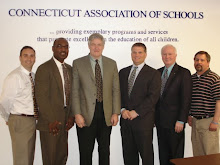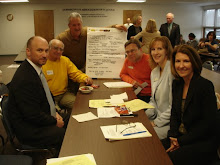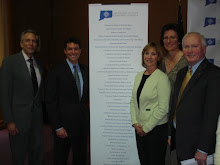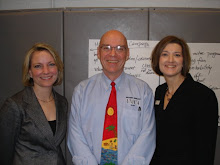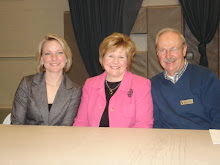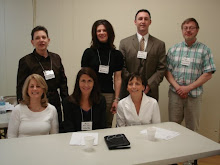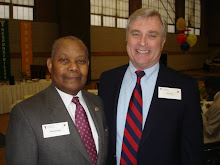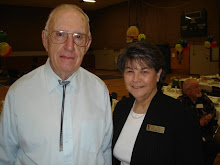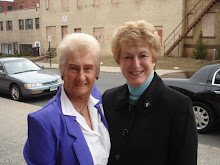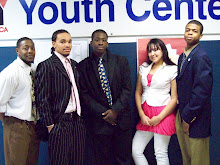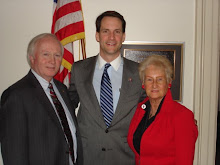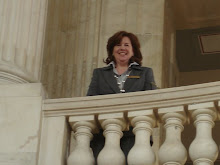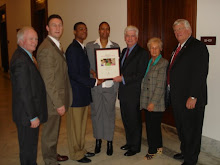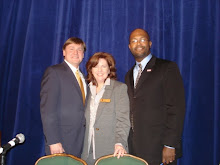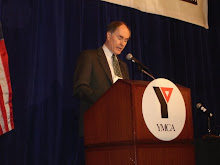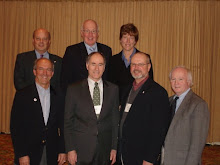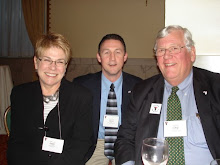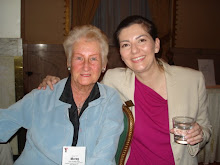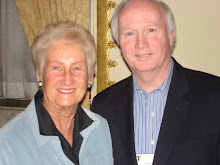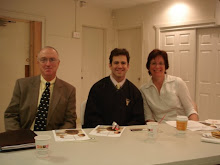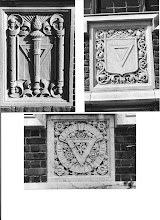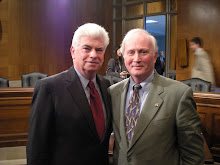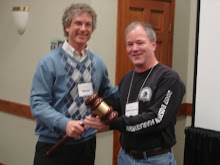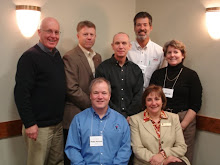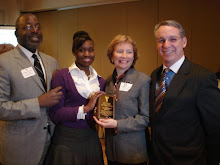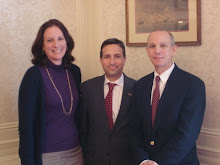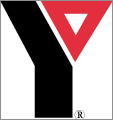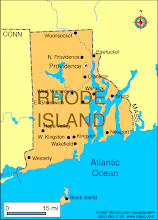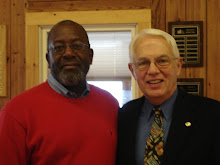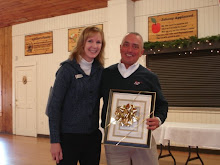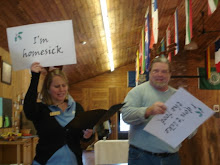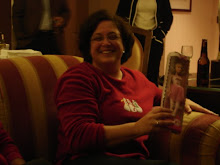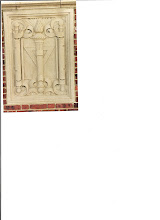Indicative of the challenging fiscal and legislative environments in our State’s Capitol is the introduction in the Connecticut General Assembly of a bill which would grant municipalities authority to impose service fees for police and fire protection and trash removal on any property exempted from property tax pursuant to specific sections of the Connecticut General Statutes.
The full text of Raised Bill No. 6558 is found at http://www.cga.ct.gov/2009/TOB/H/2009HB-06558-R00-HB.htm
Northern Middlesex County YMCA President Frank Sumpter, a member of the Connecticut YMCA Alliance Public Policy Committee, will be testifying before the General Assembly’s Committee on Finance, Revenue and Bonding on Monday, March 2nd in opposition to this proposed legislation.
Any and all property exempted from property taxes pursuant to subdivision (7) of section 12-81 of the Connecticut General Statutes would be affected by this legislation.
Pictured are (L-R) – Marshall Collins, Connecticut YMCA Alliance Lobbyist / State Representative Chris Perone (Norwalk’s 137th Assembly District), Assistant Majority Leader / Norwalk YMCA Executive Director Cindy Armijo, Member of the Public Policy Committee of the Connecticut YMCA Alliance.
Saturday, February 28, 2009
Wednesday, February 18, 2009
Westport/Weston Family YMCA Marks 160th Birthday of Founder
On February 19th, the Westport Weston Famiy YMCA marks the 160th birthday of its founder and benefactor, Edward Thomas Bedford. Bedford was born in Brooklyn, New York on February 19, 1849. E. T. Bedford funded the establishment of the YMCA in Westport, Connecticut, which opened its distinctive English Tudor-style building in 1923.
A June 1, 1931 Time Magazine article, reporting on Bedford's death, noted:
"Frederick Thomas Bedford, 50, last week mourned the death of his father, Edward Thomas Bedford, 82. Between them there was deep family affection. Between them there was also the friendship which arises from long competition between men. For the late E. T. Bedford was president of Corn Products Refining Co. and his son was president of its smaller but potent rival, Penick & Ford Ltd., Inc.
The late Mr. Bedford lived in Westport, Conn., commuted five days a week to his Manhattan office. He had white chop whiskers like the late George F. Baker's, a fondness for gardens and horses (especially trotters which he still drove at 80), an antipathy to tobacco and liquor. In business he was stern, having received late training (after 40) in the hard school that was old Standard Oil. Rockefeller, Pratt, Archbold and Rogers were among his teachers in that school.
In 1901 Mr. Bedford wished to find some business for his son Frederick. The son saw a future in the corn products business and Mr. Bedford agreed. In 1901 New York Glucose Co. was formed. Mr. Bedford became its president, without salary. His son was made treasurer and given the reins. Bitter competition arose from Corn Products Co. ("The Glucose Trust"). The elder Bedford became more & more active. In 1906 Corn Products, its earnings vanishing, pleaded for mercy. It was granted in the form of a merger. Mr. Bedford abandoned his oil interests in order to head the new Corn Products Refining Co. Behind him in the oil business he left his brother, Frederick H. Bedford, and his son Charles Bedford, now vice president of Vacuum Oil Co. Below him he placed his son Frederick as treasurer.
In 1913 the Government sued Corn Products Refining and the company discreetly sold its interest in Penick & Ford back to the original owners, who sold what amounted to one-third of the company to Frederick Thomas Bedford, who thereupon left the paternal fold to strike out for himself. Ten years younger than Messrs. Penick & Ford, Son Bedford assumed large duties. In 1927 he was made president of the company. Although Penick & Ford was almost wrecked by the depression of 1921, 1930 saw its profits at $1,811,348 against 1929's $1,882,441. It is the country's third largest maker of corn products (second: A. E. Staley Manufacturing Co., Decatur, Ill.). Famed are its Br'er Rabbit Molasses and Vermont Maid Maple Syrup. Son successfully faced Father, was not defeated.*
Corn Products Refining is a far greater company than Penick & Ford. Last year it earned $14,067,000 against $16,309,000 in 1929. Its total assets come to $127,393,000 against Penick & Ford's $14,097,000. Some 9,000 people own its common stock. Corn Product's best known brands include Argo starch, Mazola oil, Karo syrup, Linit starch, Cerelose sugar, Kremel pudding powder. Since Father Bedford was believed to be one of its largest shareholders, Son Bedford may find himself in the strange position of having a more valuable investment in Corn Products than in his own company."
A June 1, 1931 Time Magazine article, reporting on Bedford's death, noted:
"Frederick Thomas Bedford, 50, last week mourned the death of his father, Edward Thomas Bedford, 82. Between them there was deep family affection. Between them there was also the friendship which arises from long competition between men. For the late E. T. Bedford was president of Corn Products Refining Co. and his son was president of its smaller but potent rival, Penick & Ford Ltd., Inc.
The late Mr. Bedford lived in Westport, Conn., commuted five days a week to his Manhattan office. He had white chop whiskers like the late George F. Baker's, a fondness for gardens and horses (especially trotters which he still drove at 80), an antipathy to tobacco and liquor. In business he was stern, having received late training (after 40) in the hard school that was old Standard Oil. Rockefeller, Pratt, Archbold and Rogers were among his teachers in that school.
In 1901 Mr. Bedford wished to find some business for his son Frederick. The son saw a future in the corn products business and Mr. Bedford agreed. In 1901 New York Glucose Co. was formed. Mr. Bedford became its president, without salary. His son was made treasurer and given the reins. Bitter competition arose from Corn Products Co. ("The Glucose Trust"). The elder Bedford became more & more active. In 1906 Corn Products, its earnings vanishing, pleaded for mercy. It was granted in the form of a merger. Mr. Bedford abandoned his oil interests in order to head the new Corn Products Refining Co. Behind him in the oil business he left his brother, Frederick H. Bedford, and his son Charles Bedford, now vice president of Vacuum Oil Co. Below him he placed his son Frederick as treasurer.
In 1913 the Government sued Corn Products Refining and the company discreetly sold its interest in Penick & Ford back to the original owners, who sold what amounted to one-third of the company to Frederick Thomas Bedford, who thereupon left the paternal fold to strike out for himself. Ten years younger than Messrs. Penick & Ford, Son Bedford assumed large duties. In 1927 he was made president of the company. Although Penick & Ford was almost wrecked by the depression of 1921, 1930 saw its profits at $1,811,348 against 1929's $1,882,441. It is the country's third largest maker of corn products (second: A. E. Staley Manufacturing Co., Decatur, Ill.). Famed are its Br'er Rabbit Molasses and Vermont Maid Maple Syrup. Son successfully faced Father, was not defeated.*
Corn Products Refining is a far greater company than Penick & Ford. Last year it earned $14,067,000 against $16,309,000 in 1929. Its total assets come to $127,393,000 against Penick & Ford's $14,097,000. Some 9,000 people own its common stock. Corn Product's best known brands include Argo starch, Mazola oil, Karo syrup, Linit starch, Cerelose sugar, Kremel pudding powder. Since Father Bedford was believed to be one of its largest shareholders, Son Bedford may find himself in the strange position of having a more valuable investment in Corn Products than in his own company."
Tuesday, February 17, 2009
YMCA Congressional Champion
United States Senator Chris Dodd (D-CT) has been selected as one of four YMCA Congressional Champions. Senator Dodd will be honored at the 2009 YMCA National Advocacy Days, March 3-5 in Washington, DC. A delegation of Connecticut YMCA leaders, led by Central Connecticut Coast YMCA President Philip Dwyer will pay tribute to Senator Dodd. Participating in this year's YMCA National Advocacy Days from Connecticut are Morag Vance, Chair of the YMCA State Alliance Public Policy Committee, Sean Doherty, Executive Director of the Wallingford Family YMCA, Chip Lewis, Past Chair of the Alliance Public Policy Committee, and YMCA Resource Director Richard Foot.
Quasquicentennial of New Britain-Berlin YMCA
The New Britain YMCA was founded in 1883 to protect young men and boys from the sins and temptations of a rapidly industrializing urban America. Today, it cuts across social, racial, economic, religious and gender lines because it was founded to serve basic human needs.
Some interesting facts about the YMCA of New Britain and Berlin:
In 1895, 3 years after the invention of basketball at the Springfield YMCA Training School, the New Britain YMCA Basketball Team was the World Champions.
Also, in 1895 the "dribble" was invented in New Britain, in order to slow the game down and to help prevent injuries from tackling.
The old YMCA building was located on the corner of Court and Main Streets. Dedicated in 1899, the building was nearly destroyed by fire in 1906. It was rebuilt in 1907.
The 'new' YMCA building was dedicated on May 11, 1954, and people threw coins into the new pool.
In 1954 the game of racquetball was born at the New Britain YMCA, after having been conceived by Joe Sobek of the Greenwich, CT YMCA. The New Britain YMCA can boast four past world champions of racquetball.
The Berlin-Kensington Branch was created in the late sixties and continues to offer high quality child care, youth and family programs.
The New Britain-Berlin YMCA has had four successful capital campaigns in the last 20 years. The Y has raised more than $5 million during that period for its charitable works.
The New Britain Y has had only ten CEO's in 125 years
Some interesting facts about the YMCA of New Britain and Berlin:
In 1895, 3 years after the invention of basketball at the Springfield YMCA Training School, the New Britain YMCA Basketball Team was the World Champions.
Also, in 1895 the "dribble" was invented in New Britain, in order to slow the game down and to help prevent injuries from tackling.
The old YMCA building was located on the corner of Court and Main Streets. Dedicated in 1899, the building was nearly destroyed by fire in 1906. It was rebuilt in 1907.
The 'new' YMCA building was dedicated on May 11, 1954, and people threw coins into the new pool.
In 1954 the game of racquetball was born at the New Britain YMCA, after having been conceived by Joe Sobek of the Greenwich, CT YMCA. The New Britain YMCA can boast four past world champions of racquetball.
The Berlin-Kensington Branch was created in the late sixties and continues to offer high quality child care, youth and family programs.
The New Britain-Berlin YMCA has had four successful capital campaigns in the last 20 years. The Y has raised more than $5 million during that period for its charitable works.
The New Britain Y has had only ten CEO's in 125 years
Saturday, February 7, 2009
The Gavel Has Been Passed
In the venerable tradition of the seamless transfer of power in this democracy, “the gavel has been passed to a new generation” of Cities Group Conference planners.
John Myers (right), CEO of the Southington-Cheshire Community YMCA (CT), passes the over-sized YMCA Cities Group Conference gavel to Steve Ives, CEO of the Merrimack Valley YMCA (MA) at the close of the 2009 YMCA Cities Group Conference, held in Newport, Rhode Island.
The 2010 and 2011 Cities Group Conferences will be planned and led by the Cities Group CEOs of The Bay State (“The Land of the Cod”).
John Myers (right), CEO of the Southington-Cheshire Community YMCA (CT), passes the over-sized YMCA Cities Group Conference gavel to Steve Ives, CEO of the Merrimack Valley YMCA (MA) at the close of the 2009 YMCA Cities Group Conference, held in Newport, Rhode Island.
The 2010 and 2011 Cities Group Conferences will be planned and led by the Cities Group CEOs of The Bay State (“The Land of the Cod”).
Thursday, February 5, 2009
We're Not In Mayberry Anymore!
Six Connecticut YMCA CEOs participated this week in the 2009 YMCA Cities Group Conference in Newport, Rhode Island. Marking its 26th year, this annual conference draws together CEOs of YMCAs with budgets between $5.0 million and $15.0 million in the Northeast (Maryland to Maine). This year’s conference was attended by 36 CEOs.
CEOs participating from Connecticut included Marie Miszewski (Regional YMCA of Western Connecticut), Pat Morrissey (Darien Community YMCA), John Myers (Southington-Cheshire Community YMCA), Rob Reeves (Westport/Weston Family YMCA), Andrew Roberts (Greater Waterbury YMCA), and Frank Sumpter (Northern Middlesex YMCA). YMCA of the USA Resource Director Richard Foot and Y-USA Northeast Region Training Manager Andrea Vignali are pictured with the Connecticut CEOs.
The theme of this year’s conference was “We’re Not In Mayberry Anymore!” – a reference to the ever-changing, more sophisticated environment in the social profit sector. Conference speakers included Y-USA Senior Vice President Kent Johnson, YMCA Retirement Fund President John Preis, and Y-USA Director of Research and Planning Myrtis Meyer.
Connecticut YMCA Cities Group CEOs John Myers (Chair), Bob McDowell, Pat Morrissey and Frank Sumpter served on the planning committee this year.
CEOs participating from Connecticut included Marie Miszewski (Regional YMCA of Western Connecticut), Pat Morrissey (Darien Community YMCA), John Myers (Southington-Cheshire Community YMCA), Rob Reeves (Westport/Weston Family YMCA), Andrew Roberts (Greater Waterbury YMCA), and Frank Sumpter (Northern Middlesex YMCA). YMCA of the USA Resource Director Richard Foot and Y-USA Northeast Region Training Manager Andrea Vignali are pictured with the Connecticut CEOs.
The theme of this year’s conference was “We’re Not In Mayberry Anymore!” – a reference to the ever-changing, more sophisticated environment in the social profit sector. Conference speakers included Y-USA Senior Vice President Kent Johnson, YMCA Retirement Fund President John Preis, and Y-USA Director of Research and Planning Myrtis Meyer.
Connecticut YMCA Cities Group CEOs John Myers (Chair), Bob McDowell, Pat Morrissey and Frank Sumpter served on the planning committee this year.
Sunday, February 1, 2009
Polar Plunge Builds Strong Kids
Eighty very hardy souls took "the plunge" for the benefit of the YMCA Strong Kids Campaign at the Southington-Cheshire Community YMCA recently. $16,000 was raised to send kids to camp this summer at YMCA Camp Sloper. The Wilton Family YMCA has this month jumped into the frigid waters with a Penguin Plunge to benefit the Special Olympics. Pictured to the right is Southington-Cheshire Community YMCA CEO John Myers with his wife, Moi, and their great friend Jeanne Marie Lester.
Subscribe to:
Comments (Atom)

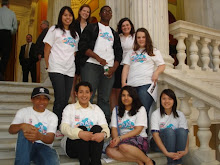





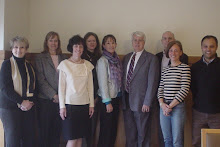.jpg)
